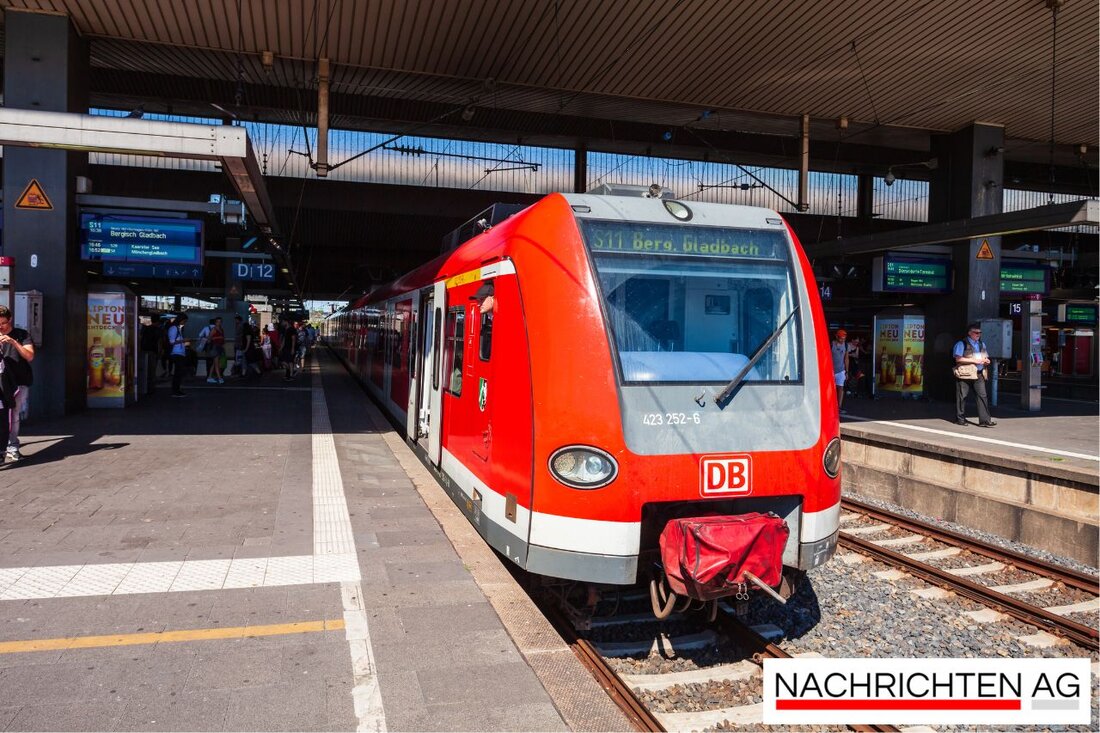Swiss railway: punctuality at a record level - what makes the difference?
Swiss railway: punctuality at a record level - what makes the difference?
Basel, Schweiz - Switzerland has established itself as a pioneer in the punctuality of rail traffic. According to the current figures, 98.6% of the long -distance trains of the Swiss Federal Railways (SBB) arrive on time, whereby less than three minutes are considered acceptable. For comparison: In Germany, Deutsche Bahn achieved punctuality of only 62.5%in 2024, whereby a delay from six minutes from six minutes counts as unpunctual. These remarkable differences in rail traffic are influenced by various factors that have been successfully implemented in Switzerland in recent decades. KN Online reports that, for example, the connection without a course book has been significantly improved since the introduction of the cycle schedule in 1982.
The Swiss rail infrastructure is closely clocked, which supports punctuality. Travelers often have to change, but this is facilitated by direct connections and close connections. German travelers who want to travel to Interlaken or Zurich have had to switch to SBB trains in Basel since April 2024, since the passage of some ICE trains from Hamburg and Dortmund is no longer permitted due to timetable disorders. Christa Hostettler, director of the Swiss Federal Office of Transport (BAV) since August 2024, emphasizes how important these structural decisions are for punctuality.
investments and infrastructure
In order to achieve the high punctuality, Switzerland invests around CHF 3 billion in substance maintenance and between CHF 1 and 1.5 billion in the expansion of the infrastructure. About 450 euros are invested in the rails per capita, which is enormer compared to Germany, where only 114 euros per capita is used. In addition, at 2464 kilometers per capita, the Swiss attach much greater importance to the use of rail traffic than the Germans, where this number is only 1206 kilometers. exiting.ch leads the importance of these investments in the rail infrastructure as one of the main causes for the excellent punctuality.
The SBB network comprises around 3,000 kilometers and 700 target stations. Around 9,500 trains are coordinated in Switzerland every day, whereby modern technologies such as the Ott system and the Trapeze Operations Management System contribute to precise planning. Intensive training of employees and measures to ensure operational safety, such as heated switches, contribute to the robustness of the system.
challenges and outlook
Nevertheless, there are challenges. The SBB has debt of over CHF 12 billion, which were mainly caused by corona pandemic and increasing construction costs. In addition, the digitization of the rail network in Switzerland is still incomplete, but progress in the area of customer orientation is encouraging. One example is the 75% of the tickets that are now sold online, while the SBB app counts over four million users.
In Germany, attempts at modernization are due, such as the SB² program, which started in 2023 to increase the stability of rail operations. The aim is to introduce a tied production standard for maintenance and investment measures and thus create better planning security. The Deutsche Bahn In the coming years, it will have to make considerable efforts to catch up at the level of Swiss punctuality.
In conclusion, it can be seen that Switzerland is not only leading in the punctuality of rail traffic, but has also developed a comprehensive system that is advantageous for both travelers and the operating person. The continuous investments in the rail infrastructure and technological progress are crucial to keep and expand this top position.| Details | |
|---|---|
| Ort | Basel, Schweiz |
| Quellen | |


Kommentare (0)